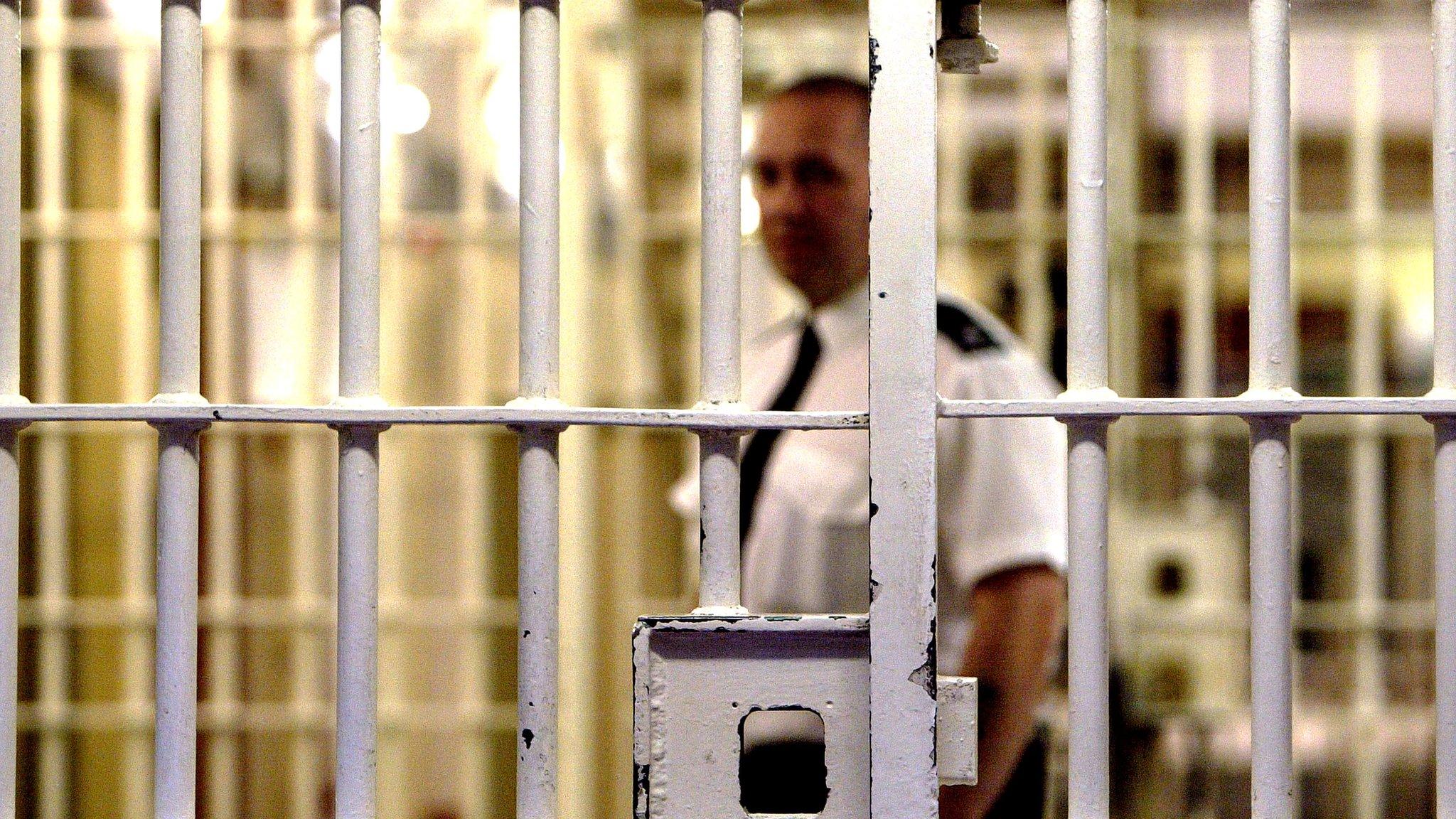Probation reforms far from complete, warn MPs
- Published
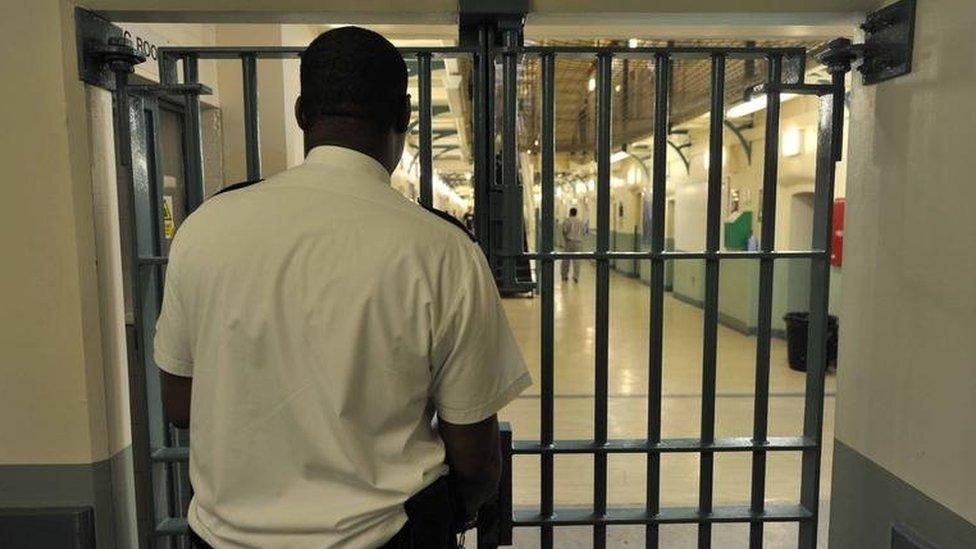
The government's promised "rehabilitation revolution" in England and Wales is "far from complete", an influential committee of MPs has said.
There was "no clear picture" of how the probation system was performing, two years after changes had been announced, the Public Accounts Committee said.
And it said IT problems had "undermined the pace of change".
The government said it was committed to delivering the "vital reforms" and reducing re-offending rates.
Government changes announced in 2014 have seen the probation service split in two, with:
Community Rehabilitation Companies (CRCs) supervising low- and medium-risk offenders
a new National Probation Service (NPS) taking over the supervision of high-risk offenders
The aim of is to reduce the human and economic cost of reoffending.
'Serious uncertainty'
But in a report published on Friday, external, the Public Accounts Committee said: "The Ministry of Justice is now more than two years into these ambitious reforms, intended to reduce reoffending, but they are far from complete.
"There is still no clear picture of how the new system is performing in important areas of the reforms."
It said information and communications technology (ICT) systems in probation were "inefficient, unreliable and hard to use".
"Failure" to deal with these problems and "serious uncertainty over the impact on providers of lower than expected business volumes" had also "undermined the pace of change".
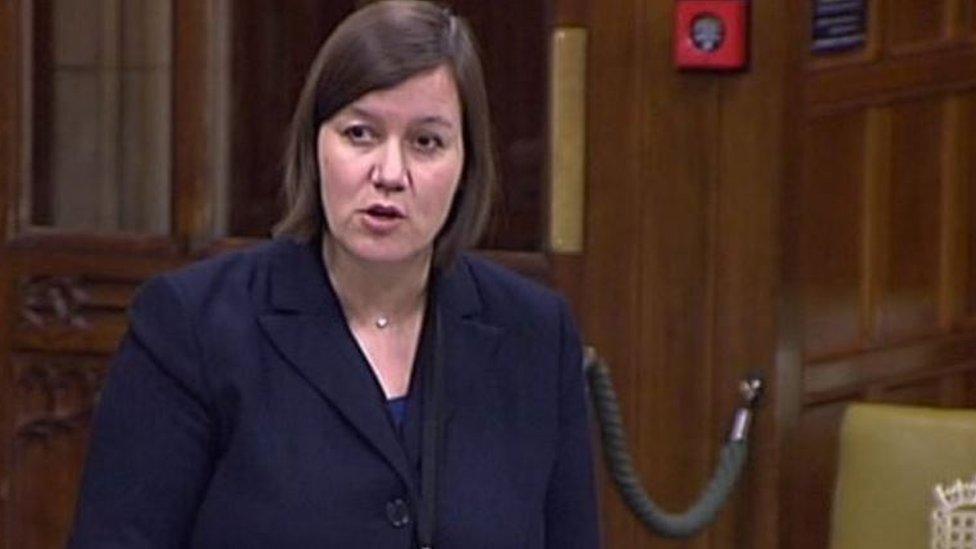
Meg Hillier, who chairs the committee, said there was a risk the Ministry of Justice had "bitten off more than it can chew"
The MPs also said it was unclear whether the extension of supervision after release to offenders sentenced for less than 12 months was "having the desired impact", saying almost 60% of people who received short prison sentences "reoffend within a year".
The committee acknowledged the "scale of challenges" facing the MoJ in the coming years, particularly in delivering "ambitious" changes to the courts and prisons systems in England and Wales at a time of "increasingly constrained resources".
"But it is crucial that the ministry completes the 'rehabilitation revolution' it has started and makes good on its promise to reduce the huge economic and human cost of reoffending," it said.
Labour MP Meg Hillier, who chairs the committee, said there was a real danger the MoJ had "bitten off more than it can chew".
'Academies of crime'
"Ambition is one thing, but, as our committee continues to document across government, delivering positive results for taxpayers and society in general is quite another," she said.
"'Revolution' is a potent word the government may regret using to describe its reforms to rehabilitation.
"After two years, these are far from complete, and there remain serious risks to achieving the performance levels expected by the end of 2017."
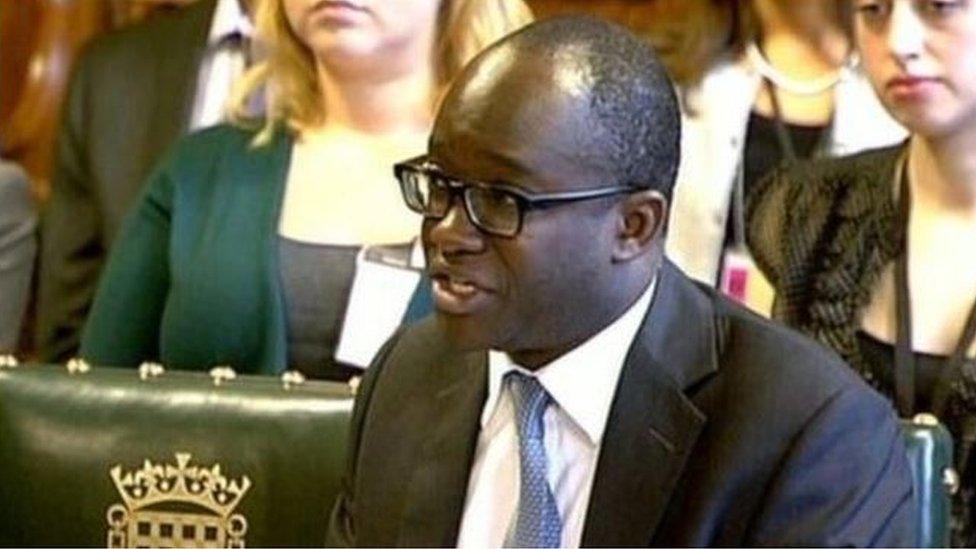
Justice Minister Sam Gyimah said public protection was the government's "top priority"
Justice Minister Sam Gyimah said: "We are carrying out a comprehensive review of the probation service to improve outcomes for offenders and communities.
"Public protection is our top priority, and we will not hesitate to take the necessary action to make sure our vital reforms are being delivered to reduce reoffending, cut crime and prevent future victims."
Commenting on the report, Liberal Democrat justice spokesman Jonathan Marks QC said that without his party in government to pursue reform "we have seen progress grind to a halt".
He said the rates of reoffending were not only a "massive waste of public money" but "disastrous" for the public and bad for people "stuck in the cycle of reoffending".
He also accused the government of inaction on reducing the prison population and said many prisons in England and Wales were "academies of crime".
The Lib Dems wants to replace short jail terms with "robust" community sentences and "greater use of tagging" for sentences of less than 12 months.
- Published28 April 2016
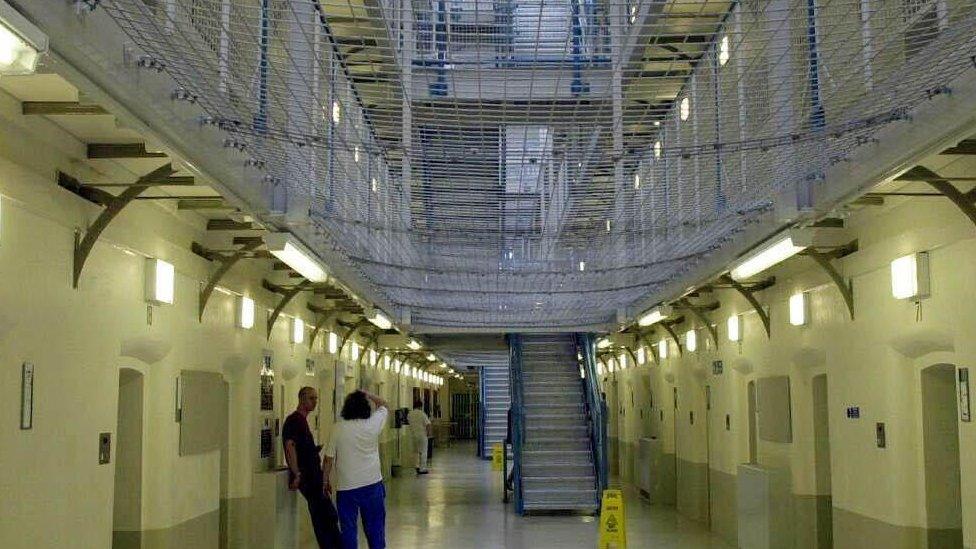
- Published29 October 2014
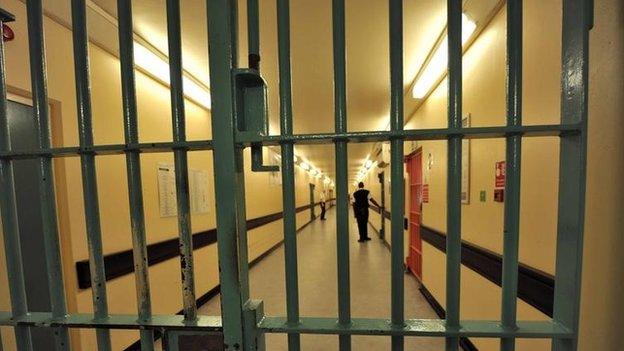
- Published15 December 2014
